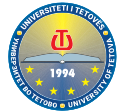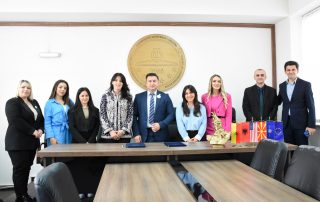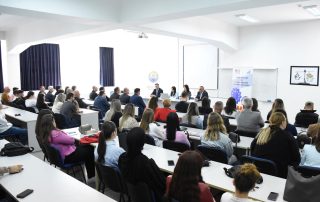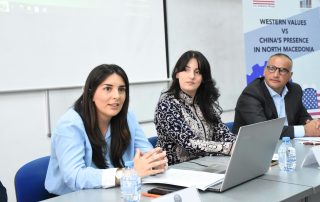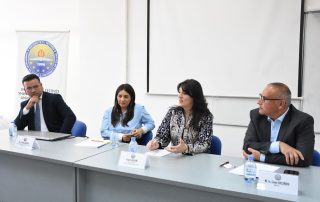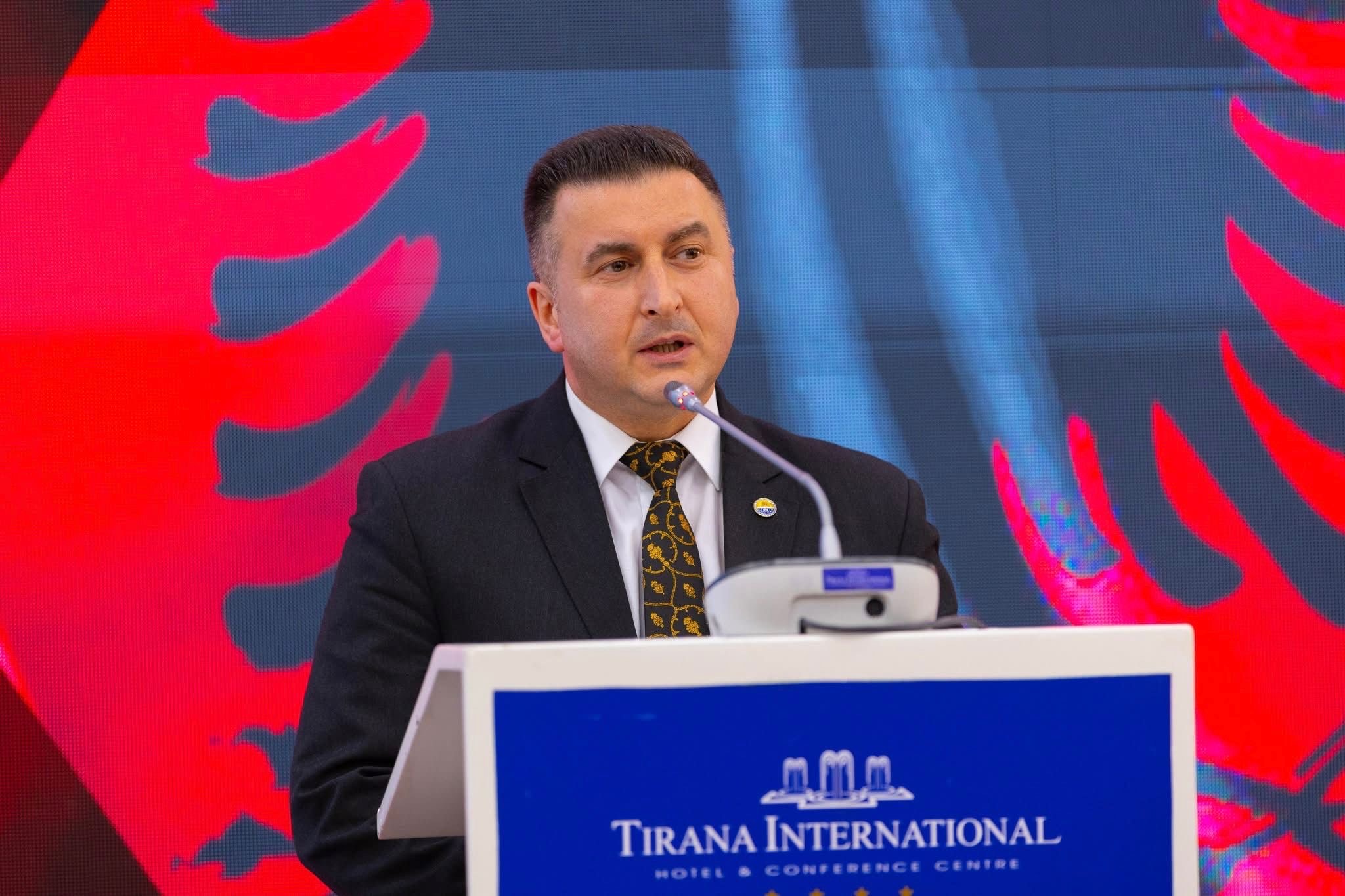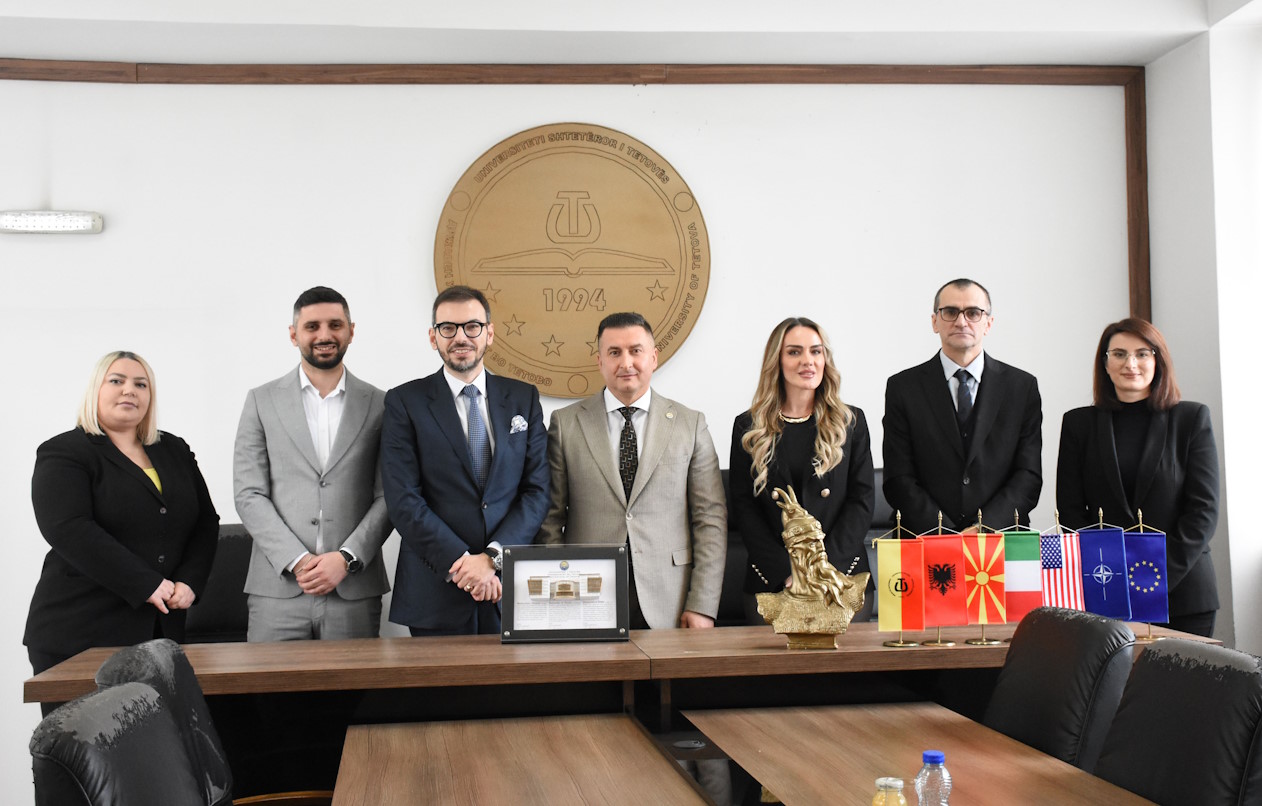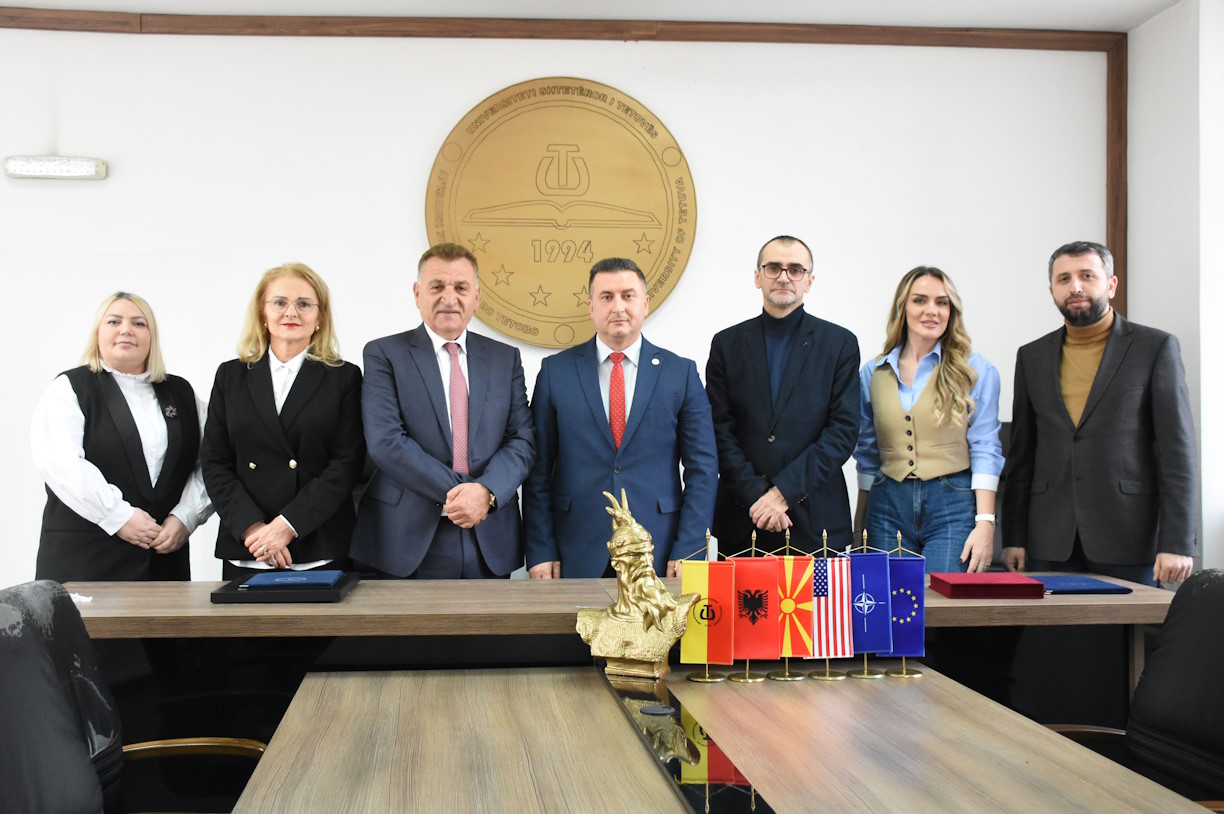Rector of the University of Tetova Prof. Dr. Jusuf Zejneli accompanied by the Director of the Center for Peace and Transcultural Communication, MSc. Donika Kamberi, and other colleagues hosted in a working meeting the Director of the Institute for Leadership and Public Policy, Pranvera Kasami. On this occasion, a memorandum of cooperation was signed to develop and improve partnership relations between the two institutions in various fields. These fields include support and collaboration in designing and implementing projects of common interest, organizing joint activities such as seminars, conferences, roundtables, workshops, and similar events aimed at strengthening the capacities and quality of services of both institutions.
In the framework of this cooperation, was held a panel discussion on the topic: “Political and economic relations between Republic of North Macedonia and People’s Republic of China”. Rector of the University of Tetova, Prof. Dr. Jusuf Zejneli welcomed this organization and said that in this 30th anniversary, it is very important that our university maintains the spirit of cooperation with the USA, through important institutions in RNM. “The path of progress and creativity is always challenging, but together with our partners, especially in this jubilee year, we manage to promote values, innovations, and, of course, take responsibility for addressing topics that are highly relevant to current developments in our country and beyond. All this is done to equip our young people, our students, to prepare them as much as possible for their future professional activities in various institutions”- stated the Rector of the University of Tetova, Prof. Dr. Jusuf Zejneli. The Executive Director of the Institute for Leadership and Public Policy, Pranvera Kasami, mentioned that this panel discussion is part of a project developed in cooperation with the American Embassy in RNM, addressing the topic of China’s influence in our country and how it intersects with Russian influence. “From this project, I would like to highlight a research collaboration with the University of Kentucky in the USA. This project aims to provide a more accurate understanding of China’s presence and influence in various forms—political, diplomatic, and economic—and how it extends throughout the country, whether from China or Russia”- stated among other things, the Executive Director of the Institute for Leadership and Public Policy, Pranvera Kasami.
The Director of the Center for Peace and Transcultural Communication, MSc, Donika Kamberi, in her speech emphasized that the geostrategic position of the Western Balkans is ideal for serving as a connecting bridge for EU markets and a key transit corridor for the Chinese Belt and Road Initiative (BRI). She stated that Chinese interests in the region are closely tied to infrastructure projects and privatization opportunities. “As Russia and China align their positions in opposition to the West, a three-level war emerges: in military technology, in the ‘New Battle Space’ of space technology, and in the field of artificial intelligence. Belgrade serves as China’s stronghold in the Balkans, operating through two main avenues. Chinese investments in Serbia are evident through projects such as the construction of the highway connecting it with Montenegro and the high-speed railway linking it with Hungary. Unfortunately, in North Macedonia, In North Macedonia, unfortunately, China has recently extended its influence across strategic, economic, and ideological domains. China’s economic objectives are closely tied to North Macedonia’s geographical position, which is significant for the Belt and Road Initiative. This enables China to facilitate the rapid transportation of goods to Athens, the largest port in the Mediterranean, controlled by Chinese companies”, stated Director of the Center for Peace and Transcultural Communication, MSc. Donika Kamberi.
Professor of the Faculty of Economics, Prof. Dr. Bardhyl Dauti, said that North Macedonia stands at a significant crossroads, with China presenting a particular challenge due to its expansive global geostrategy. “In this context, North Macedonia serves as a unique case study. Recent increases in economic relations and foreign direct investment between the Republic of North Macedonia and China indicate growing Chinese influence in the country. This influence may persist as long as the country’s European integration path faces significant challenges in the medium-term future. Therefore, it is important that we continue to hold lectures of this nature and offer collective suggestions for fostering a stronger pro-European sentiment in the country”, – said the Professor of the Faculty of Economics, Prof. Dr. Bardhyl Dauti.
